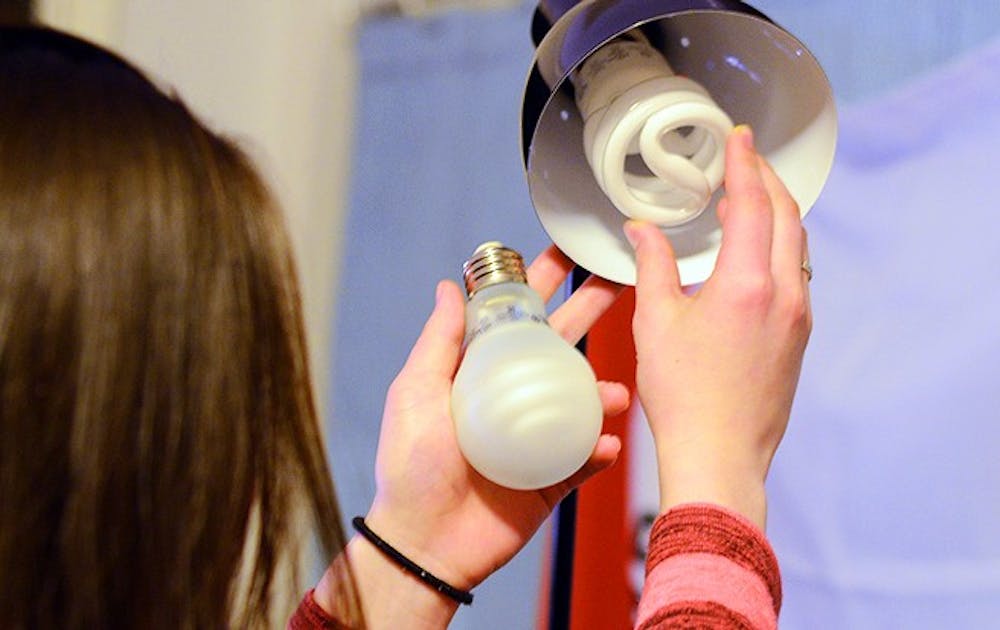In an ongoing effort to become climate-neutral by 2024, Duke will replace streetlights with energy-efficient lightbulbs.
After conducting a complete survey of light fixtures on campus, Duke Facilities Management will replace 1,460 lamps with LED lightbulbs. The project, which is part of Duke’s commitment to the 2009 Climate Action Plan, is expected to save the University $188,000 in energy and operational costs annually. The University seeks to reduce greenhouse gas emissions by 21 percent by 2015, according to the action plan, published by the Campus Sustainability Committee. So far, all the replacement LED lightbulbs have been ordered, and on-site work to replace the existing light fixtures will start in May, said Steve Palumbo, energy manager for Facilities Management.
“With the new LED street lamps, we will not need to change them nearly as often,” Palumbo said. “It’s a big step forward in the [Climate Action Plan].”
The replacement bulbs are projected to remove 631 metric tons of carbon from Duke’s carbon emissions, he noted, equal to the amount of electricity used by 94 average U.S. homes annually.
The new LEDs—which will be installed by Facilities’ high voltage technicians, who are responsible for the installation, operation, maintenance and distribution of electric power on campus—are expected to last about 40,000 hours. The existing lamps only last about 10,000 hours, he added.
The upgrade in light bulbs will also come with aesthetic changes. Palumbo noted that there are currently several different styles of lamp posts on campus, and the upcoming change will try to make them more uniform by adding brown caps and a glass prism cover.
Replacing streetlights is just one of many initiatives led by Facilities Management, Palumbo added. The University is looking to equip classrooms with motion detectors that turn off the lights automatically if there is no one in the rooms. Additionally, Facilities Management is starting a water consumption project to replace toilets, faucets and urinals in several buildings on campus, including the Bryan Center and French Family Science Center. The changes are expected to reduce water consumption by 9 million gallons per year.
“One of the main motivations for changing the light bulbs is because energy efficiency is one of the points in the neutrality goal,” said Casey Roe, sustainability outreach coordinator for the Duke Sustainability Program.
But the sustainability strategic plan is broader than mere energy conservation, Roe noted. The University also focuses on waste and recycling, as well as water management. Duke has been on track in meeting its sustainability goals so far.
According to the 2012 Sustainability Strategic Plan Progress Report, Duke reached a 16 percent reduction in greenhouse gas emissions from the 2007 baseline. With both the Duke Cancer Center and Chilled Water Plant #2 receiving Leadership in Energy and Environmental Design Gold certification this year, Duke now has a total of 26 LEED-certified buildings on campus.
Get The Chronicle straight to your inbox
Signup for our weekly newsletter. Cancel at any time.

